Why do I drool in my sleep at night?
There are several reasons you might be drooling in your sleep, and most of them are nothing to worry about.
These are the most likely causes:
- Standard sleep disorders: Conditions like sleep apnoea or bruxism (teeth grinding) can increase drooling by affecting your breathing and mouth position while you sleep.
- Acid reflux: Gastro-oesophageal reflux disease [1] (GORD) can irritate the oesophagus, triggering more saliva production at night.
- Medications: Certain medications, including antidepressants and antipsychotics, are known to stimulate saliva production.
- Nasal congestion: A blocked nose or cold often forces you to breathe through your mouth, disrupting saliva control and increasing the likelihood of drooling.
- Oral hygiene: Poor dental care can lead to infections in the mouth, which may cause excessive salivation.
Drooling in your sleep, whilst annoying, is usually quite harmless.
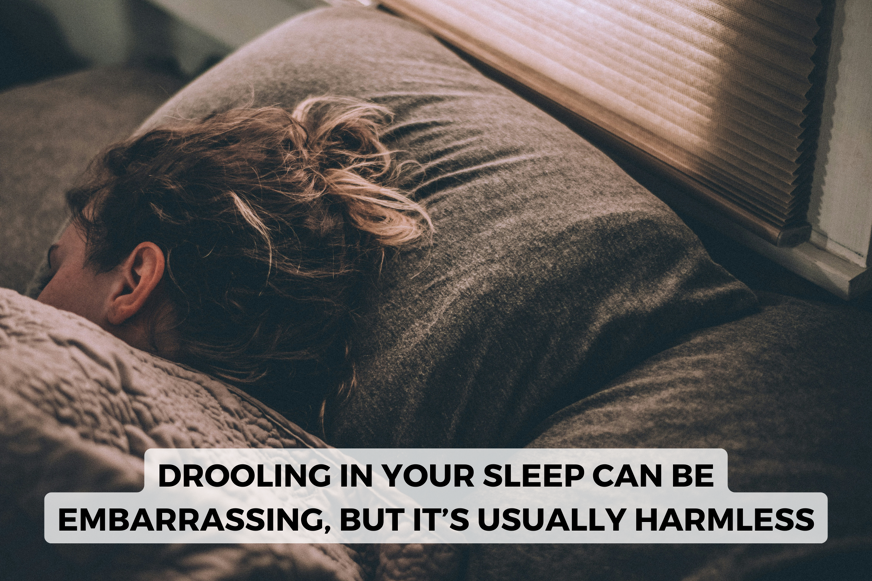
But, it could also be sign of a more serious underlying condition.
What health issues could cause excessive drooling?
Health issues causing excessive drooling are not common, but it’s worth knowing about these, especially if you’re experiencing other symptoms.
- Allergic reactions: Allergies and respiratory infections can inflame the nasal passages and throat, increasing saliva production and making it harder to swallow effectively.
- Dysphagia: Dysphagia [2] refers to difficulty swallowing, which can be caused by conditions like Parkinson’s disease, multiple sclerosis, muscular dystrophy, or certain cancers. These issues can lead to a build-up of saliva as swallowing becomes less efficient, often resulting in drooling during sleep.
- Dental infections: Tooth infections can cause pain and discomfort while also stimulating excessive saliva production as the body reacts to the infection.
- Neurological disorders: Conditions like Parkinson’s disease or strokes can impair muscle control, including the muscles responsible for swallowing. This can lead to saliva pooling in the mouth.
- Epiglottis inflammation: Inflammation of the epiglottis, often caused by infections, can make swallowing painful and difficult, potentially causing hyper-salivation.
- Facial paralysis: Facial paralysis [3], whether temporary or permanent, can weaken facial muscles, making it harder to keep the mouth closed and control saliva while sleeping.
- Guillain-Barré syndrome: Guillain-Barré [4] is a rare condition affecting the peripheral nerves that often causes muscle weakness that can extend to the mouth and throat. This can increase the likelihood of drooling.
It’s likely you are already aware of these if you have an underlying health concern, but, if in doubt, make an appointment to see your GP or healthcare professional.
How can I stop drooling in my sleep?
Drooling in your sleep can be uncomfortable and even embarrassing, but here are some simple solutions to try fix the problem:
Change your sleeping position
Your sleep profile can significantly impact if or how much you drool at night.
Sleeping on your back is often the best position as it helps keep your mouth closed, reducing saliva build-up.
If you usually sleep on your side or stomach, try gradually moving over to your back for better results.
Stay hydrated
Proper hydration throughout the day helps maintain normal saliva consistency, making it easier to manage and swallow.
Drinking enough water also lubricates the mouth and throat, reducing the likelihood of excessive nighttime drooling.
Consult a doctor
This may not be the answer you want, but if drooling persists or is accompanied by other symptoms, like difficulty breathing or excessive daytime salivation, it’s important to seek medical advice. 👩⚕️
A doctor can help identify any underlying causes, such as sleep apnoea or neurological conditions, and recommend treatments like:
- Medication to reduce saliva production or address related conditions.
- Speech therapy to teach you techniques for managing saliva, if swallowing or muscle control issues are at fault.
- Botox injections to temporarily reduce saliva production, in cases of severe hyper-salivation.
In extreme cases, surgery targeting salivary glands or nerves may also be recommended.
Trying specialised accessories
Certain sleep tools and devices can help manage nighttime drooling.
- Mandibular advancement devices: These adjust the jaw to keep airways open and reduce drooling. They’re often used for sleep apnoea.
- CPAP machines: These regulate breathing and reduce drooling in sleep apnoea sufferers.
- Inclined pillows or wedges: These elevate the head and shoulders to aid swallowing and limit saliva build-up. Check out our article on the best wedge pillows to help you get started.
- High-loft pillows: These keep the head elevated, promoting swallowing and reducing saliva production. You can check out our guide on the best pillows in the UK and look for the high-loft options to help you here.
We’d recommend the Simba Hybrid pillow with a loft of 20 cm (7.8") or the Emma Premium Microfibre pillow with a loft of 16 cm (6.2") for the best support.
These high-loft pillows will help keep your head elevated, which can reduce saliva production:
Nighttime drooling: When should you be concerned?
While excessive drooling is often harmless, it can sometimes indicate an underlying health issue.
You should consult a healthcare professional if you experience:
- Pain when drooling
- Chest discomfort or difficulty breathing
These symptoms could point to conditions like acid reflux or sleep disorders, which a doctor can help diagnose and manage. 👨🏻⚕️
Final thoughts on drooling in your sleep
Drooling in your sleep is usually harmless and can often be managed with simple changes like adjusting your sleep position or staying hydrated.
However, if it persists or is accompanied by other symptoms, seeking medical advice is essential to rule out underlying health issues.
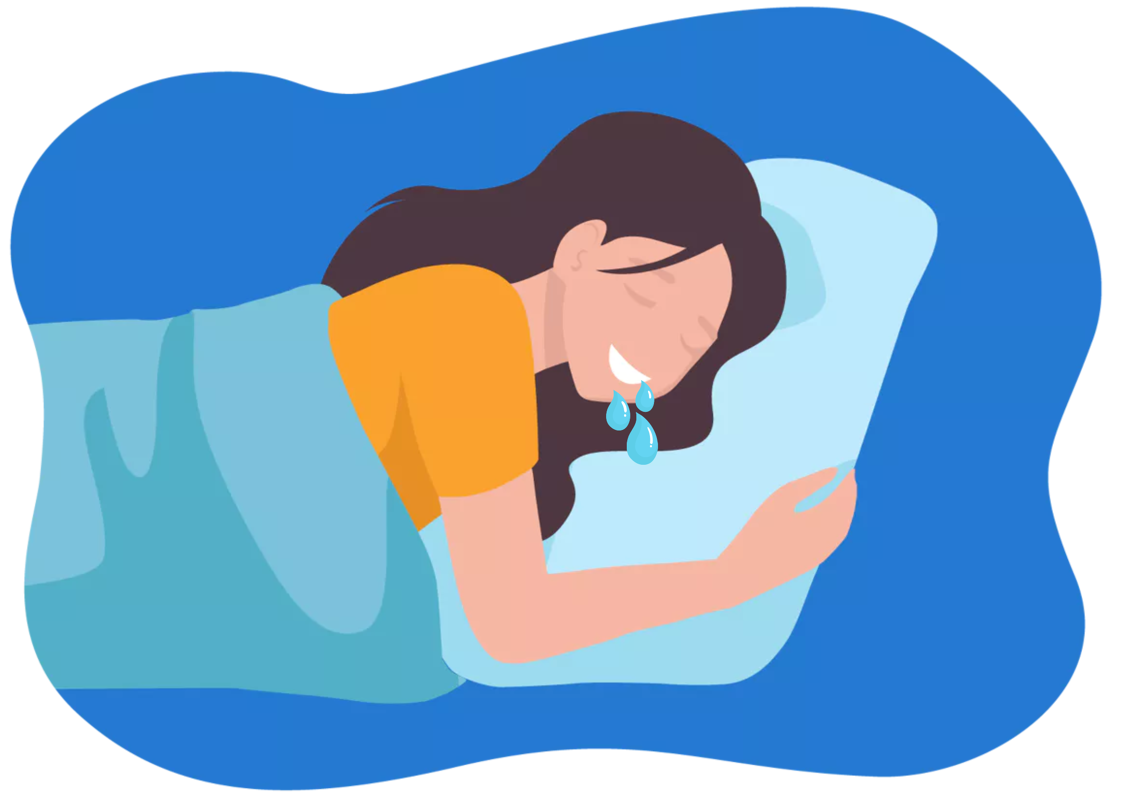





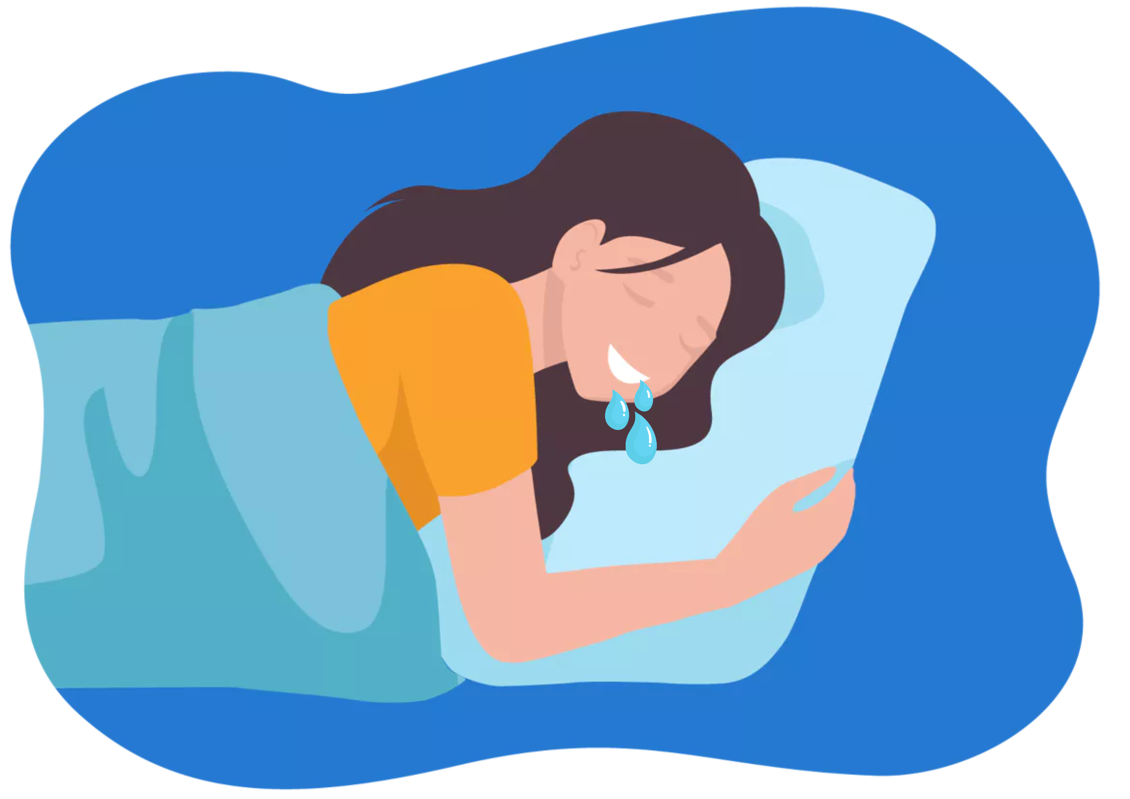
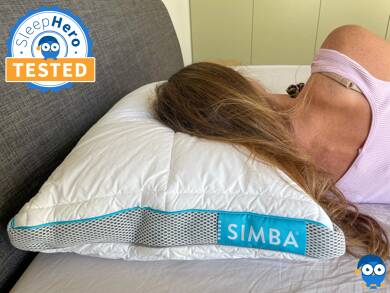

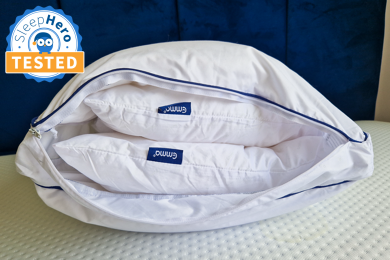

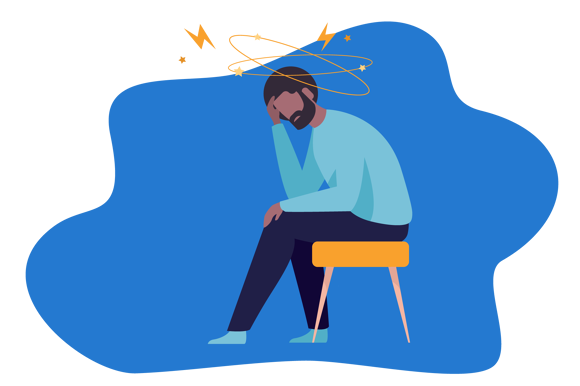
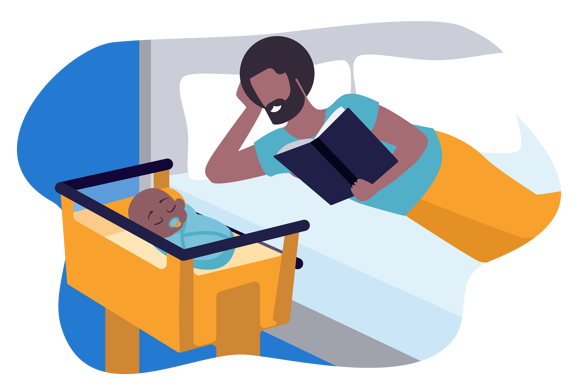
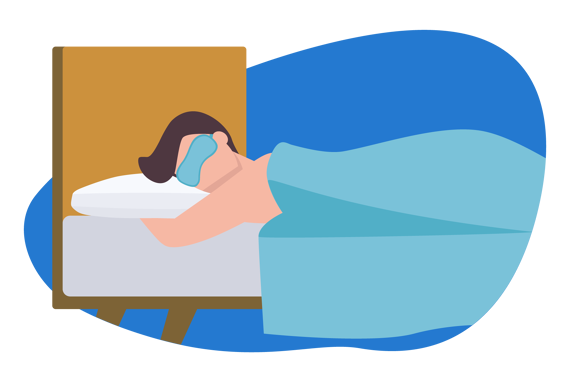


Alternatively, message us directly via the Contact Us page.